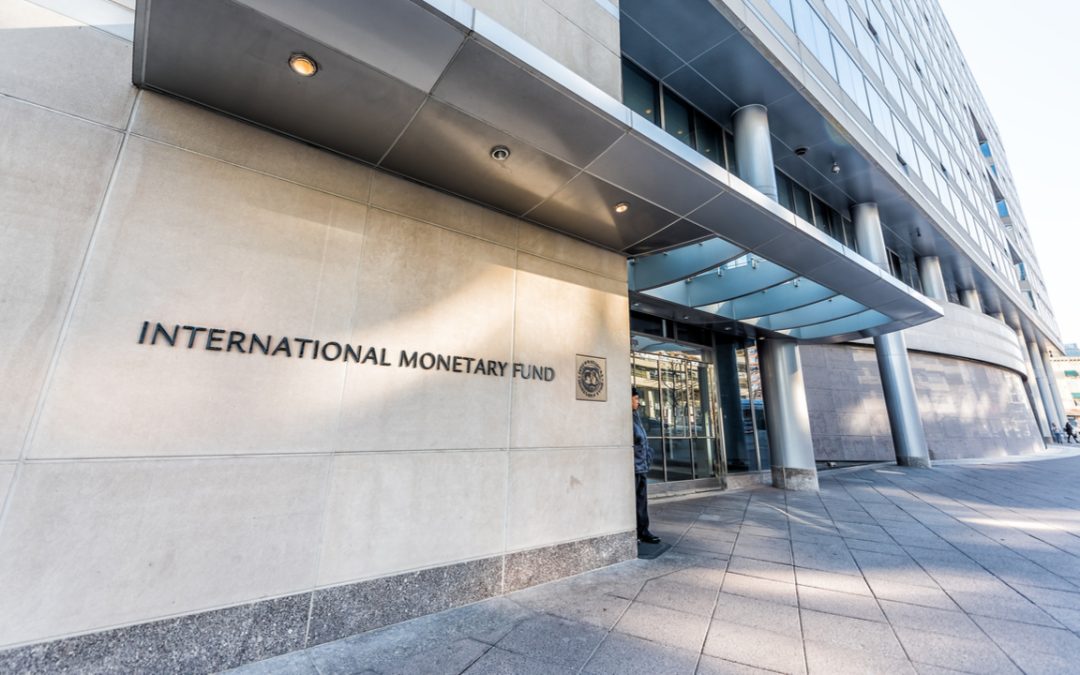Nations like Russia and Iran may utilize cryptocurrency mining to monetize their energy resources and circumvent sanctions, the International Monetary Fund predicts in a report. Repercussions of the war in Ukraine continue to reverberate globally and cryptoization is one of the effects, the IMF says.
War, Sanctions Lead to Wider Spread of Crypto Assets, Report Indicates
The consequences of the ongoing military conflict in Ukraine will test the resiliency of the global financial system, may affect the role of the U.S. dollar, and lead to the establishment of blocs of central bank digital currencies, the IMF warns in its Global Financial Stability Report, April 2022. Energy security priorities may put climate transition goals at risk, according to the document.
Accelerated “cryptoization,” with wider use of crypto assets in emerging markets, is another issue policymakers will have to address in the coming years. As proof of that trend, the IMF points to a spike in crypto trading volumes after the introduction of sanctions, including financial penalties, against Russia over its invasion of Ukraine. The report emphasizes:
This is occurring against a longer-term increase in such cross-border transactions, bringing to the fore the challenges of applying capital flow measures and sanctions.
Capital restrictions imposed in both countries have also contributed to the increase, the IMF notes. At the same time, “liquidity in the ruble and hryvnia trading pairs in centralized exchanges remains limited and has even declined more recently in the case of ruble,” the authors remark. In their opinion, this is making large transfers through crypto exchanges impractical.
However, the IMF admits that the crypto ecosystem allows users to evade some restrictive measures such as stricter identity verification requirements. As a result of freezing of crypto assets and blocking of new ruble deposits, part of the transactions could have shifted to less transparent platforms or non-complying crypto service providers, the international organization acknowledges.
IMF Sees Risks to Financial Integrity in Cryptocurrency Mining
The IMF experts believe that countries like the Russian Federation and the Islamic Republic of Iran could use crypto mining to circumvent sanctions. They elaborate that the energy-intensive minting of digital currencies like bitcoin can allow these nations to monetize their energy resources outside the traditional financial system. Revenues can be generated via transaction fees as well.
“At this point, the share of mining in countries under sanctions and the overall size of mining revenues suggests that the magnitude of such flows is relatively contained, although risks to financial integrity remain,” the IMF concludes. According to estimates quoted in the report, Russian miners could have captured close to 11% of last year’s bitcoin mining revenues, which averaged about $1.4 billion a month, while Iranian mining farms could have received around 3%.
Officials in Moscow have been turning attention to crypto assets as a tool to restore Russia’s access to global markets, receive payments for energy exports, finance international trade, and potentially diversify currency reserves. Government institutions support the legalization of crypto mining as an economic activity and a new bill “On Digital Currency” was recently revised to add provisions regulating the industry.
Do you expect western sanctions against countries like Russia to target cryptocurrency mining? Tell us in the comments section below.










